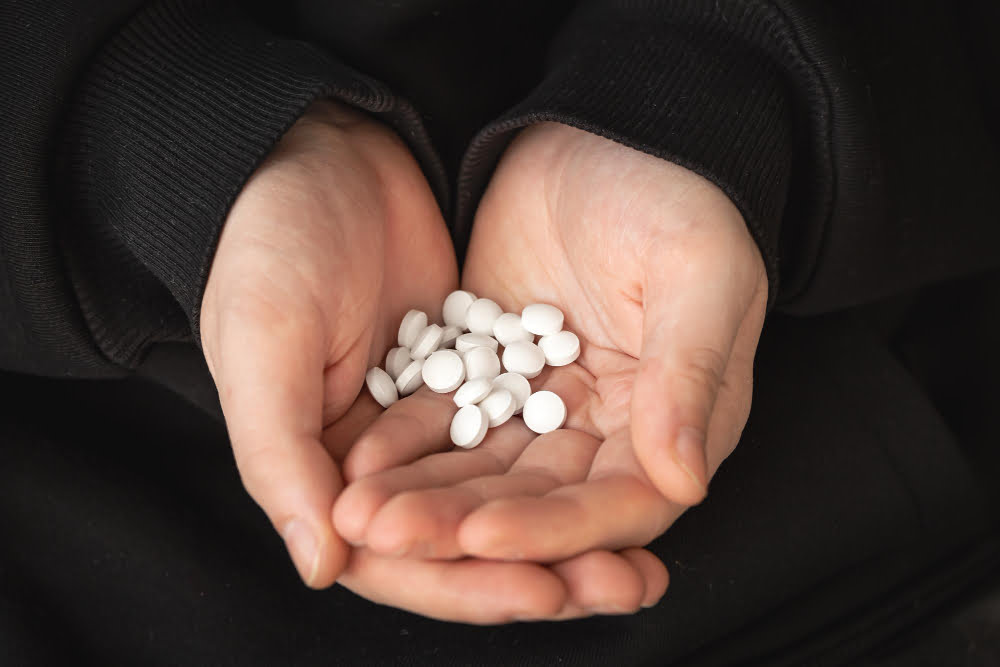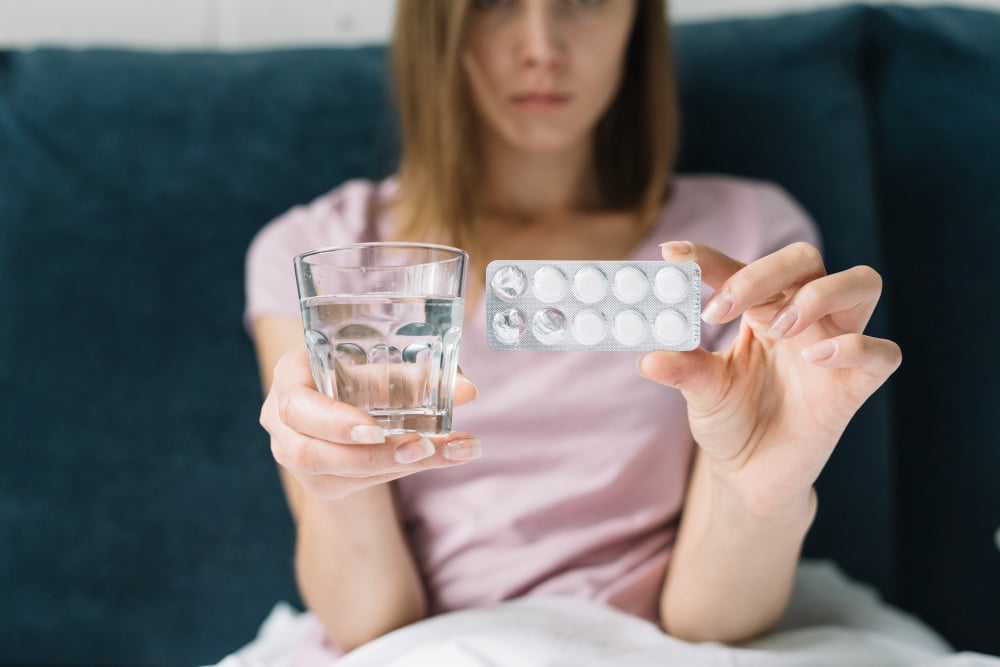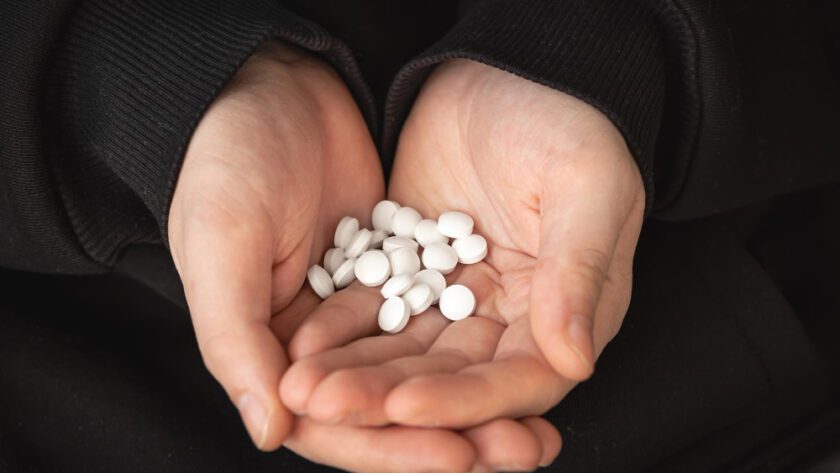Mixing antidepressants and alcohol is dangerous and can lead to serious health risks. It’s vital to be aware of the potential dangers before you take these substances together, as they could have long-term effects on your physical and mental health. This blog post will discuss the risks linked with mixing antidepressants and alcohol, including how it affects your body and what sober living homes California are doing to help those struggling with substance abuse.
We’ll also provide some alternatives for alcohol for managing depression. Understanding the risks involved and being mindful of your actions when consuming either or both substances can ensure a healthier lifestyle overall.

How Antidepressants Work and Their Types
Antidepressants are a group of medications that work by altering the levels of different neurotransmitters in the brain to improve mood and relieve symptoms of depression and other mental health conditions. Here are the different types of antidepressants and how they work:
Tricyclic Antidepressants (TCAs)
Tricyclic antidepressants work by increasing the levels of neurotransmitters (norepinephrine and serotonin) in the brain. They are less commonly prescribed today due to the availability of newer medications with lesser side effects.
Selective Serotonin Reuptake Inhibitors (SSRIs)
Selective serotonin reuptake inhibitors work by hindering the reabsorption of serotonin in the brain, which helps to increase the levels of this neurotransmitter. SSRIs are among the most commonly prescribed antidepressants due to their relatively low side effect profile.
Monoamine Oxidase Inhibitors (MAOIs)
Monoamine oxidase inhibitors work by inhibiting the enzyme that breaks down neurotransmitters (serotonin, norepinephrine, and dopamine). MAOIs are not commonly prescribed today due to their significant potential for interactions with other medications and certain foods.
Other Antidepressants
Other antidepressants, such as bupropion and duloxetine, can have varying interactions with alcohol. It is vital to consult your healthcare provider before drinking alcohol while taking any prescription medication, including antidepressants, to understand the potential risks and make informed decisions to protect your mental health.
How Alcohol Works and Its Effects
Alcohol is a depressant that affects the CNS and can significantly affect mood and behavior. While drinking alcohol in moderation is generally safe for most people, drinking excessively or developing an alcohol use disorder can negatively affect mental health, including making depression worse. Here’s a closer look at how alcohol works and its potential risks:
Effects of Alcohol on the Brain
Alcohol affects the levels of neurotransmitters in the brain, including GABA and dopamine, which can lead to feelings of relaxation and pleasure. However, excessive drinking can lead to disruptions in the balance of these neurotransmitters, which can lead to negative effects on mood and behavior.
Alcohol Misuse Can Lead to Dependence
Drinking alcohol in excess can lead to alcohol abuse and dependence, significantly negatively affecting mental health. Individuals who struggle with alcohol use disorder may experience more severe symptoms of depression and anxiety, making it harder to recover from these conditions.

The Risks of Mixing Antidepressants and Alcohol
Mixing antidepressant drugs and alcohol can significantly negatively affect mental health and well-being. Here are some of the risks of mixing these substances:
Decreased Effectiveness of Antidepressants
Drinking alcohol while taking antidepressant drugs can decrease the effectiveness of the medication, making it challenging to manage depression symptoms. This can lead to longer recovery times and an increased risk of relapse.
Increased Risk of Side Effects
Mixing antidepressants and alcohol can increase the risk of negative side effects, such as drowsiness, dizziness, and nausea. These side effects can be more severe and long-lasting when mixed with substances.
Dangerous Interactions between Antidepressants and Alcohol
Antidepressant drugs and alcohol can interact in dangerous ways, affecting blood pressure and increasing the risk of seizures, liver damage, and other serious health problems.
Moderate Drinking While Taking Antidepressants
While moderate drinking may be safe for some individuals, it is important to talk to your physician before drinking alcohol while taking antidepressants. Your physician can help you understand the potential risks and make informed decisions to protect your mental health.
Alternatives to Alcohol for Managing Depression
Managing depressive symptoms can be challenging, but alternative treatment options can help without the risks associated with alcohol and antidepressants. Here are some examples:
Therapy
Therapy, cognitive-behavioral therapy (CBT), or interpersonal therapy (IPT) can aid individuals in identifying and addressing the root causes of their depressive symptoms. Therapy can be an effective alternative to antidepressant medication and can be used with other treatment options.
Lifestyle Changes
Lifestyle changes (regular exercise, healthy eating habits, and stress-reduction techniques) can also effectively manage depressive symptoms. Activities promoting well-being and fulfillment can help individuals feel better and improve their mental health.
Support Groups
Support groups, such as Alcoholics Anonymous or peer support groups for individuals with depression, can also deliver a sense of community and help individuals feel less alone. Communicating with others going through similar experiences can be empowering and help individuals feel more in control of their mental health.
It is important to remember that alcohol and antidepressants are not the only options for managing depressive symptoms. Individuals who struggle with alcohol dependence or who experience negative side effects from antidepressants should talk to their physician about alternative treatment options. Making informed decisions and seeking professional help can help individuals effectively manage depressive symptoms while maintaining their overall well-being.
Conclusion
Mixing antidepressants and alcohol can be dangerous and lead to negative consequences. It can decrease the effectiveness of antidepressants, increase the risk of side effects, and lead to dangerous interactions between the two substances. It is vital to seek medical advice before combining antidepressants and alcohol and to avoid drinking alcohol altogether if you have a history of alcohol abuse or dependence.
Alternative treatment options, such as therapy, lifestyle changes, and support groups, can effectively manage depressive symptoms without the risks associated with alcohol and antidepressants. Making informed decisions and seeking professional help can help individuals effectively manage depressive symptoms while maintaining their overall well-being.
Remember, prioritizing your mental health is essential, and seeking help is a sign of strength.




